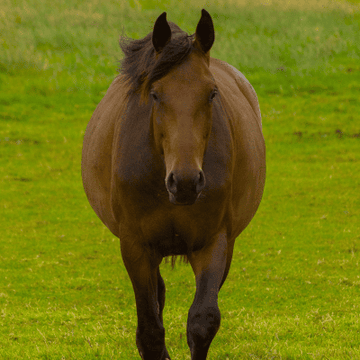A proper diet is key to keeping any horse healthy, with forage being the most important component of their diet. The remaining portion should ensure adequate intake of energy, protein, vitamins, and minerals according to each horse’s needs and life stage. A horse with a healthy immune system is better equipped to effectively fight off illness, infection, or injury.
Horses in Moderate to Intense Work
Horses in moderate to intense work, or in competition, not only have higher vitamin and mineral requirements, but may also experience increased stress due to workload intensity, exposure to different environments, and travel – all of which can negatively impact their ability to fight disease.
There are numerous concentrate feeds specifically formulated for such horses, generally featuring higher levels of nutrients essential for immune support. In more specific or critical cases, forage and standard feed may not be enough, and it may be advisable to complement the horse’s diet.
Vitamin E
Vitamin E and selenium are excellent antioxidants, meaning they help prevent muscle damage caused by free radicals after intense work. In addition to being a powerful antioxidant, selenium is essential for the proper functioning of vitamin E. Recent studies have shown that supplementing a horse's diet with vitamin E and selenium can help reduce risks associated with oxidative stress and improve immunity in immunocompromised horses.
Vitamins A, C, and Other Nutrients
Vitamin A (important for enhancing white blood cell function), vitamin C (a powerful antioxidant), high-quality protein (for tissue repair and enzyme/antibody production), among other nutrients, are particularly important for a strong immune system. Therefore, including a multivitamin supplement in the horse's diet may offer significant benefits in preventing and combating illness.
In Summary:
The best way to support a horse's immune system is to ensure its diet is as balanced and appropriate as possible.

